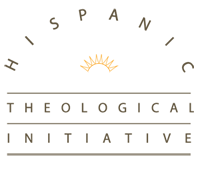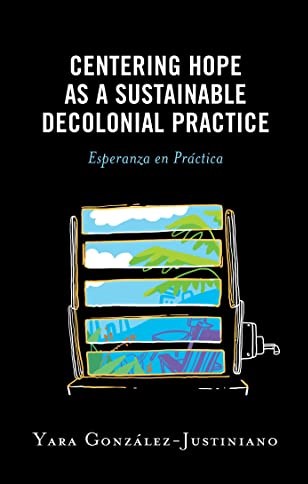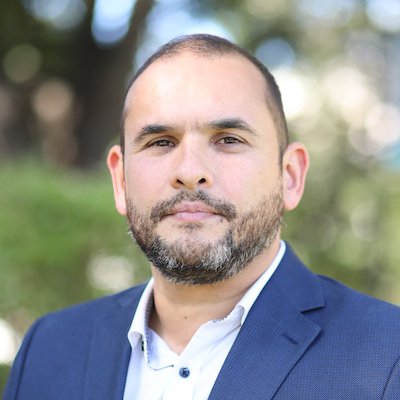
João Chaves
João Chaves is Associate Director for Programming at the Hispanic Theological Initiative. João graduated with an MTS from George W. Truett Theological Seminary and received his Ph.D. in religion from Baylor University. Currently, Dr. Chavez is an Assistant Professor of Evangelism and Mission at Austin Presbyterian Theological Seminary. He has presented and published his research broadly both in English and Portuguese. His academic articles were published by peer-reviewed journals such as The International Journal of Latin American Religions, The Journal of Reformed Theology, Political Theology, Perspectives in Religious Studies, and Baptist History and Heritage Journal. João has served as the Unit Chair for Latinx Religions at the AAR Southwest since 2018 and is currently a member of the Commission on Racial, Gender, and Economic Justice of the Baptist World Alliance, 2020-2025 Quinquennium. He is the author of the books Evangelicals and Liberation Revisited (Wipf and Stock, 2013), O Racismo na História Batista Brasileira (Novos Diálogos, 202), and Migrational Religion: Context and Creativity in the Latinx Diaspora (Baylor University Press, 2021). João is also finalizing two additional manuscripts, The Global Mission of the Jim Crow South (Mercer University Press, forthcoming 2022) and Southern Missions, Christian Education, and Violence Across Borders (under consideration with University of Tennessee Press).

Yara Gonzalez Justiniano
Garrett-Evangelical Theological Seminary welcomes Dr. Yara González-Justiniano as a visiting assistant professor of practical theology and community engagement, effective July 1, 2020. This two-year appointment was made possible through the Louisville Institute’s Postdoctoral Fellowship González-Justiniano was awarded earlier this month. Her research interests include Latine theologies, cultural identity and memory studies, postcolonial theory, popular culture, and popular religion. González-Justiniano is enthusiastic about her research and honing in concepts. Her passion has always been teaching. She teaches because she believes that education (institutionalized or noninstitutionalized) shapes our society. It has the potential to transform it as it insists on liberative and integral practices. González-Justiniano, originally from Puerto Rico, completed her Doctor of Philosophy in practical theology at the School of Theology of Boston University with a concentration in church and society. In addition, she holds a Master of Divinity with a concentration in community and global engagement, a Bachelor of Arts in communications, a minor in modern languages, and a minor in theater. González-Justiniano is Under the Care of the Christian Church (Disciples of Christ). She also works with different church communities in hopes of maintaining an open dialogue between academic endeavors and the church.
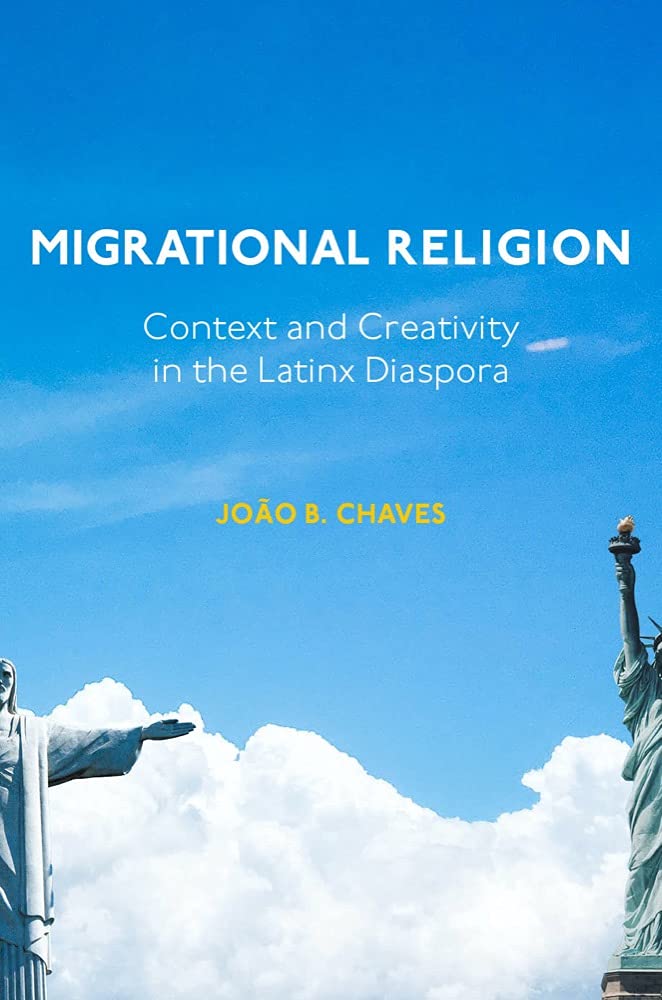
BUY HERE
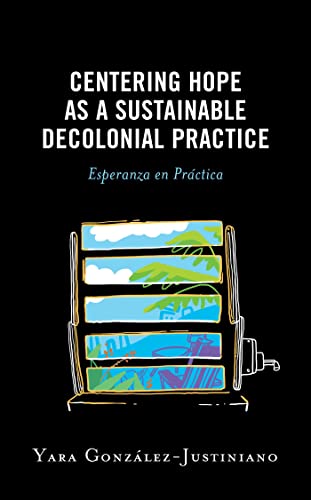
BUY HERE
Many scholars have documented how migration from Latin America to the United States shapes the interconnected spheres of religious participation, political engagement, and civic formation in host countries. What has largely gone unexplored is how the experiences of migration and adaptation to the host country also shape the ecclesiological arrangements, theological imagination, and communal strategies of immigrant religious networks. These communities maintain close ties with their home countries while simultaneously developing a religious life that distinguishes them both from their home countries and from faith communities of the dominant culture in their host countries. João Chaves offers an account of the dynamics that shape the role of immigrant churches in the United States. Migrational Religion acts as a case study of a network formed by communities of Brazilian immigrants who, although affiliated with the Southern Baptist Convention, formed a distinctive ethnic association. Their churches began to appear in the United States in the 1980s due to Brazilian Baptist missionary activity. As Brazilian migration increased in the last decades of the twentieth century, hundreds of Brazilian evangelical churches were founded to cater to first-generation immigrants. Initially, their leaders conceived of these churches as extensions of their denomination in Brazil. However, these church communities were under constant pressure to adapt to their rapidly changing context, and the challenges of immigrant living pushed them in exciting new directions. Brazilian churches in the United States faced several issues peculiar to their nature as diasporic communities: undocumented parishioners, membership fluctuation caused by national and international migration patterns, anti-immigrant prejudice, and more. Based on six years of ethnographic work in eleven congregations across the United States, dozens of interviews with Brazilian pastors, and extensive archival history in English and Portuguese, Migrational Religion documents how such churches adapted to unique challenges and reveals how the diasporic experience fosters incipient theologies in churches of the Latine diaspora.
Where is the hope? What does it look like? Is the Christian church providing a hope that materializes in the grounding of people’s thriving? These questions posed the catalysts of this work, where the author sets up a journey that parses the definition of hope within Christian theology as an ontological category of the human experience. Through ethnographic research and ecclesial study of diverse congregations in Puerto Rico, the work moves from an articulation of context, hope, practice, and future to reveal its aim of liberation through a hope that can be sustainable in time and space. She analyzes the operations of political systems that suppress hope on the island. Weaving the theme of a theology of hope with the fields of ecclesiology, memory studies, postcolonial and decolonial theory, liberation theology, and the study of social movements, she builds a model that puts hope at the center of socio-economic practices and moves toward a recipe for a hope that is sustainable in practice.
